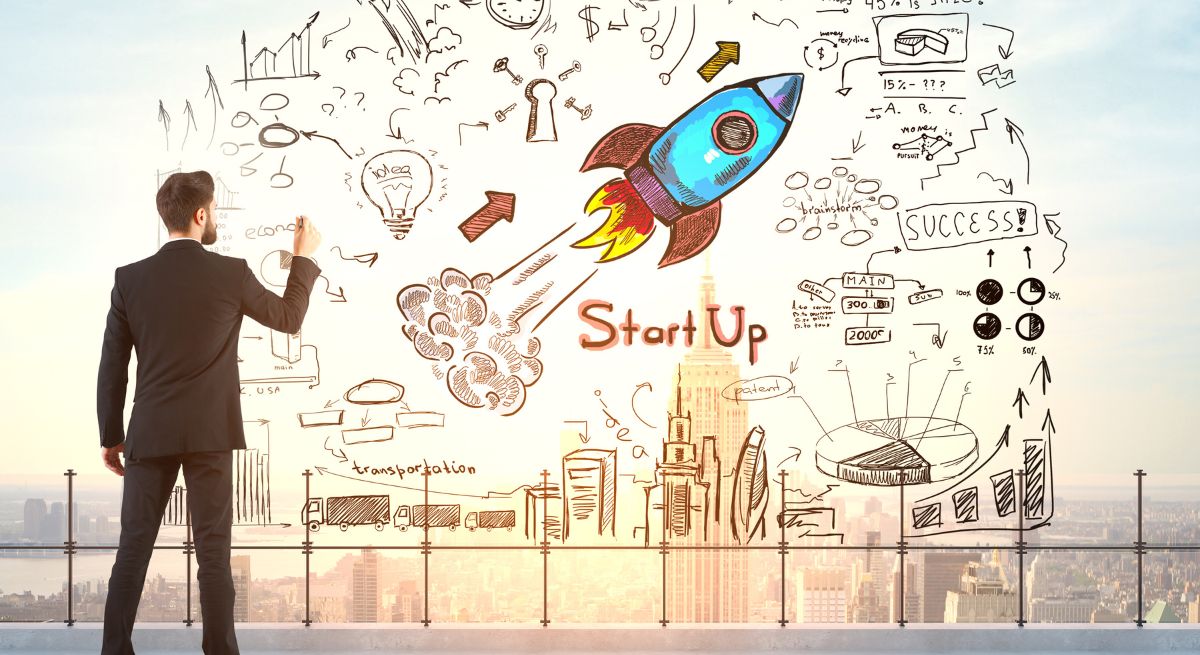It’s tempting to think that the success of a startup comes down to a brilliant idea, a disruptive technology, or a lucrative market niche. But when you peel back the layers of legendary companies Airbnb, Tesla, Stripe, WhatsApp, Figma you’ll find that what truly ignited the spark wasn’t the product or the pitch. It was the people. More specifically, the founders.
Great startups start with great founders. It sounds obvious, almost cliché. But the depth of that truth is both more mysterious and more mechanical than it first appears.
1. The Myth of the Million Dollar Idea
Let’s get this out of the way: ideas are cheap.
Almost every experienced investor or successful founder will echo the same sentiment. The idea you have in your notes app the one you think no one’s thought of is probably not unique. And even if it is, it’s not enough.
The reason? Execution eats ideas for breakfast.
There are graveyards full of startups with beautiful visions and clever concepts. But what separates an idea from a company is action. Relentless, iterative, often painful action. And it takes a founder with grit, clarity, and obsessive curiosity to bridge that gap.
That’s why when investors back early-stage startups, they don’t just bet on a product. They bet on people. They bet on founders.
2. The Founder Effect Why Personality Shapes Product
There’s a phenomenon in biology called the “founder effect.” It describes how the traits of the original members of a population disproportionately influence the future of the whole group. That same principle applies to startups.
A founder’s DNA becomes the startup’s DNA. Think about Steve Jobs’ obsession with design. Elon Musk’s relentless pursuit of ambitious timelines. Jeff Bezos’ customer-centric worldview. These aren’t just quirks—they’re strategic drivers baked into the company’s culture, roadmap, and long-term strategy.
You can clone products. You can reverse-engineer technology. But you can’t replicate the unique chemistry that emerges when a founder lives and breathes their mission.
3. Founders See What Others Miss
What makes a great founder visionary? It’s not just intelligence it’s perception.
Great founders see. They notice what’s broken, what’s inefficient, what’s unloved or unspoken. And they get restless about it.
Take Brian Chesky and Joe Gebbia, who started Airbnb because they couldn’t afford rent and saw a spike in demand for places to stay during a design conference. Most people would’ve shrugged, slept on a couch, and moved on. But they saw an opportunity. Not just for a side hustle, but a whole new category of travel.
This pattern repeats itself across history. Great founders often find insights hidden in plain sight because they’re curious enough to keep looking, even when others stop.
4. Resilience The Currency of Founders
Startups are brutal. There’s no roadmap, no guarantee, and no safety net. You get punched in the face by reality, daily.
What holds it all together in those volatile early days isn’t a robust business model or a perfect marketing plan. It’s the resilience of the founder. Their refusal to quit. Their strange comfort with chaos. Their willingness to look foolish and keep moving.
When things fall apart and they will it’s the founder’s belief that rebuilds the walls.
Consider the early days of Slack. It started as a failed gaming startup (Glitch), bleeding cash. But Stewart Butterfield noticed their internal communication tool was useful and had the humility and courage to pivot. That choice led to one of the most successful B2B SaaS tools in history.
5. Magnetism: The Hidden Superpower
Why do talented people join fragile, risky startups? Why do investors take calls with underdogs? Why do journalists write about ideas that seem, on paper, improbable?
The answer often boils down to founder magnetism.
Great founders don’t just pitch. They pull. Their energy is contagious. Their conviction is sharp. They create gravity around them, attracting capital, talent, and belief.
Magnetism isn’t about being extroverted or charismatic in the traditional sense. It’s about storytelling, emotional intelligence, and the ability to make others feel the potential of something that doesn’t yet exist.
When you sit across the table from a great founder, you don’t just hear their plan you see their future. And you want in.
6. Speed and Decisiveness
In the startup world, speed is a superpower. Markets move fast, competitors emerge overnight, and your runway is burning.
Great founders move quickly not recklessly, but with precision. They make decisions with imperfect information and learn faster than their environment. They’re experimental by nature, agile by instinct, and allergic to stagnation.
Speed doesn’t just mean shipping fast. It means learning fast. And only founders who are obsessed with progress and unafraid of failure can maintain that velocity.
In a world of overthinkers, founders are doers. And that changes everything.
7. Founders Shape the Culture Long Before They Know It
Company culture isn’t a slide deck. It’s not the perks or the ping-pong tables. It’s how people behave when no one’s watching.
In the early days, when a startup is just a few people in a co-working space, culture is forged in the everyday. How the founder gives feedback. How they handle stress. How they treat the first interns, the first customers, the first bugs.
And because the founder sets the tone, their values become the company’s values. Not through slogans, but through decisions.
If a founder is transparent, the company learns to be honest. If a founder is scrappy, the company learns to be resourceful. If a founder is kind, the company becomes human.
That’s why investors look so closely at founder behavior in the earliest conversations. Because they know: what the founder tolerates, the company repeats.
8. The Founder as Storyteller-in-Chief
The early days of a startup are more faith than fact. There are more questions than answers. You don’t just need someone who can build the product you need someone who can build belief.
Great founders are narrative architects. They craft the story that turns chaos into coherence.
- Why this problem?
- Why now?
- Why you?
They don’t just answer these questions; they embody them. Their pitch isn’t a sales script it’s a worldview. And that worldview inspires employees to join, customers to try, and investors to fund.
When you believe in a founder’s story, you’re not just buying into a company. You’re buying into a future that doesn’t exist yet but could, if they’re right.
9. The Right Kind of Ego
There’s a paradox here: founders need both big egos and no egos.
On one hand, they have to believe they can change the world. That they can bend reality with code, creativity, or sheer willpower. That they can win where others have failed.
On the other hand, they need the humility to take feedback, change course, and admit what they don’t know.
Great founders live in that tension. They have the audacity to believe in their vision and the humility to evolve it.
It’s a rare blend and when you find it, you’re not just looking at a competent leader. You’re looking at a generational one.
10. Founders as Market Whisperers
The market doesn’t care about your dreams. It cares about value.
But great founders have an almost mystical ability to tune into market signals. They listen not just to what customers say, but to what they feel. They find traction before the data makes it obvious.
They don’t chase trends they anticipate them. They zig when others zag. They’re early, but not too early. Weird, but not irrelevant.
It’s not luck. It’s pattern recognition born from obsession.
Final Thoughts Betting on Founders is Betting on the Future
If you’re an investor, the lesson is clear: back founders before ideas. Because ideas change. Markets shift. Products pivot. But founders endure.
If you’re a potential co-founder or early hire, know this: your choice of founder is your first and biggest decision. More than the role. More than the salary. You’re not just joining a startup you’re joining a person.
And if you’re a founder yourself, understand the weight and wonder of that role. Your clarity becomes your company’s clarity. Your energy becomes its heartbeat. Your curiosity becomes its compass.
Startups are, at their core, human experiments in possibility. And the best ones begin not with a perfect plan but with a person willing to take the leap.
A great founder doesn’t just build a startup.
They build a reason for people to believe.



